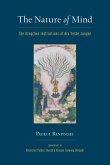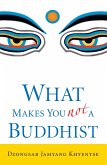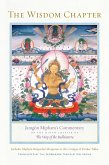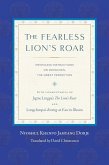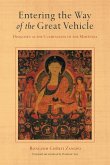In the summer of 1957, the revered Buddhist teacher and scholar Khenpo Gangshar foresaw the difficulties that would soon fall upon Tibet and began teaching in a startling new way that enabled all those who heard him to use the coming difficulties as the path of Dharma practice. The teaching consisted of the essential points of mahamudra and dzogchen, both view and practice, presented in a way that made them easy for anyone to use, even in the most difficult of circumstances. Khenchen Thrangu Rinpoche was one of the grateful recipients of these teachings, which he regards as among the most important he has ever been given. He transmits them here, for the benefit of all of us who strive to practice in challenging times. They include contemplations on the ephemeral nature of both joy and suffering, meditations for resting the mind, and guidance for cultivating equanimity in any situation.
Hinweis: Dieser Artikel kann nur an eine deutsche Lieferadresse ausgeliefert werden.
Hinweis: Dieser Artikel kann nur an eine deutsche Lieferadresse ausgeliefert werden.


